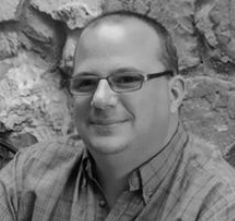 Richard Keller is an author, broadcaster, narrator, humorist (hopefully you can tell) and all-around swell individual. Even with his dabbling, Richard has produced millions of words for radio, television, magazines, blogs, and newspapers. His company, Wooden Pants Media, helps others bridge the gap to their creativity through publishing, podcasting, and workshops. You can listen to the shows of the Wooden Pants Network, including his programs The Daily Author and The Unfrustrated Entrepreneur at blogtalkradio.com/woodenpantsnetwork. His main book, Coffee Cup Tales, is available on Amazon, Nook, Kobo, iBooks, Overdrive, and library catalogs. Scene: Mrs. Courtney’s third-grade classroom Wide Shot: A gangly eight-year-old with horn-rimmed glasses, a dress shirt, and slacks (because his parents didn’t believe in jeans back then) presents a story to one of his favorite teachers. 8YO (Confident): Here it is, Mrs. Courtney. Scene switches to the beautiful Mrs. Courtney in her Dorothy Hamill haircut. She reads said story, smiles, frowns, and turns to the student. Courtney: Where did you get the idea for this story about a murder victim found in a frozen pond? 8YO (Less Confident): Umm, from an episode of Another World. End scene. Begin my official writing career, And, my first official stolen idea. From that poignant moment on I wanted to be a writer. Oh, I had been imaginative long before this pivotal moment, but I think writing the story and Mrs. Courtney’s approval woke my creative soul. So, off I went. A few years later I had my mother type up two of my short stories to send to Cricket and Analog respectively. Both were rejected. I kept the Analog story and rejection letter and still wonder why my Magnum P.I./Knight Rider mashup didn’t sell. In high school, I wrote dirty versions of He-Man because, well, I was in high school. I also started a fantasy tale where the characters were people in my classes. I wish I had kept that one. I also spent plenty of time doodling superhero names and characters on notebook covers at my retail job. Hey, not everyone came at once to the Young Men’s department of Macy’s to purchase Ocean Pacific shirts and skinny ties. Scene Break: Time given to millennial readers to look up anarchistic references. At some point toward the end of high school and right before I entered college I stopped writing fiction and turned my sights on the news world. My first professional gig was as a newspaper stringer who covered board of education and town council meetings. The only excitement was getting the article in by 11 pm in time for the next day’s paper. In college, it was copy writing for the two radio news departments I worked for (it was the late 80s, they still had those). I discarded the world of fantasy for the world of news. All right, I discarded one fantasy for another. And then I abandoned everything as my father encouraged me to take a manager-in-training position at an office supply store. I listened, because my head was so full of junk it drowned out the screaming of my creative soul. I dabbled here and there for many years – writing comic book and television reviews, submitting an article here or there – but it was a hobby. When my soul tried to make it more, the monkeys in my head screeched at it. So, it went into hiding. Then I relocated to the West. I moved to Colorado and felt the call of my creative spirit from the mountains, Native American spirits, woo-woo (scientific term), or chemical influences of a certain plant. Call it what you will, but it drew my creativity out and began to lessen the monkey chatter. Once the pieces fell into place I left the corporate world and became a fiction writer once again. I finished my first book, then a second, then two more. I started a publishing company and brought on other authors. I started a few podcasts, formed a network, and brought on others. Soon enough, I owned a creative media mecca. Not bad for someone who started his creative life borrowing ideas from a cheesy soap. Am I going to be the next Stephen King in writing or John Lee Dumas in podcasting? I’m not sure I want to be. While I wouldn’t mind their monthly income, I would rather write and broadcast across all genres while I help others build bridges to their own creativity. I have a plethora of knowledge and am truly blessed by my gifts, so why not give some of it away so others can be successful? That would be a happy ending for any story. End Scene Coffee Cup Tales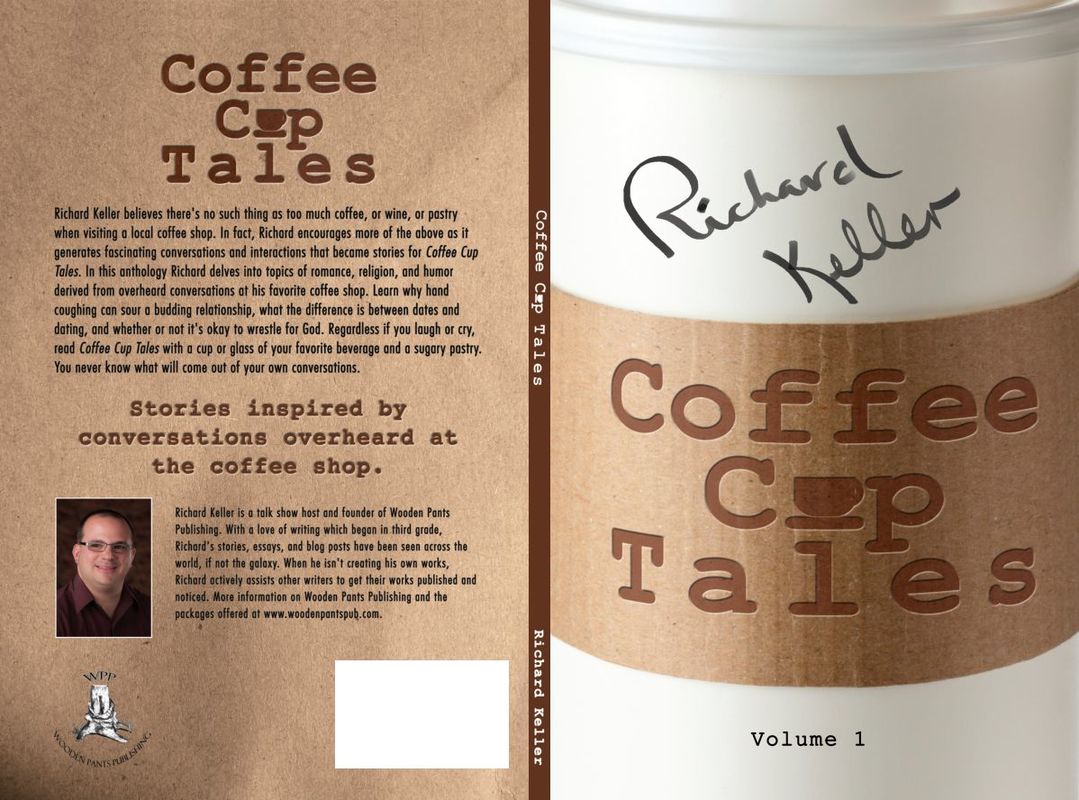 Coffee Cup Tales: Stories Inspired by Overheard Conversations at the Coffee Shop, is an anthology of short stories which stem from actions and conversations from Richard’s favorite coffee shop. It’s a mix of humor, romance, spirituality. Fantasy, and hand coughing. Richard won’t tell you what coffee shop they originated from because he may want to hear your conversations for another book. Follow Richard on Twitter 'Like' Richard on Facebook Where to Buy Coffee Cup Tales
0 Comments
 Jennifer Soosar was born and raised in Toronto and watched too much 'America's Most Wanted' growing up. Her short fiction has appeared in Ellery Queen Mystery Magazine, Out of the Gutter Online, Flash Bang Mysteries, and the Toronto Star. Her debut psychological suspense novel, PARENT TEACHER ASSOCIATION, was published by Black Opal Books in 2017. She is a member of Crime Writers of Canada, International Thriller Writers, and Sisters in Crime. She has a degree in anthropology. I started writing short stories when I was in elementary school. The teenagers who hung out at the local shopping mall food court were my first inspiration. They all had long, wild, feathered hair—even the guys—and wore skin-tight jeans. They smoked, swore, and scratched their initials into the food court tables with switch blades. They wore “Iron Maiden” t-shirts with graphics of grinning, rotting corpses across the front. I was both interested and terrified of these teens, so I started writing about them. Of course I didn’t know anything about them so, in writer fashion, I had to make it all up! The first story I ever got published (at age 13) was about a gang of delinquent teens. The work of Stephen King was another big early influence, especially his short stories in Night Shift. He wrote about darker things and this gave me permission to write about darker things, too. I wanted to write about the things and the people who scared me. It’s an ongoing theme in my writing. In my 20s, I wrote a bunch of feature-length screenplays, but soon discovered that selling a screenplay was near-impossible. I went back to short stories. I learned that you should never scrap any of your ideas because you can re-purpose them. I took some of my old screenplays and re-worked them into shorter form. My story published in Ellery Queen Mystery Magazine (‘Profane Pilgrims’, May 2016) is one example of that. Once my kids were a little older, it seemed like a great time to get started on the novel I always wanted to write. Parent Teacher Association began with only one idea: ‘a thriller set in an elementary school’. With this in mind, I outlined a basic story with the main conflict being between two characters—a parent and a teacher. The whole thing grew as my imagination took the concept to a darker, creepier place than your typical school environment, but that’s what makes it fun. While hammering out the first draft during the late summer of 2014, I was excited to learn about the annual ThrillerFest conference in New York. One of the best things about it was PitchFest, an opportunity to pitch your novel to literary agents. I quickly signed up for the next one because I wanted to give myself a hard deadline to finish the book. I now had nine months to produce an 80,000 word manuscript good enough to pitch face-to-face to agents. The deadline weighed constantly on me. Between thoughts of “what have I done?” to worries that I could deliver, the deadline ended up being the best favor I could have done for myself. There was no way out of it. I had to ignore all the fear and doubts and just keep pounding the novel out. Months went by and it started to take shape. By late June 2015, I finished what was probably the fifth or sixth draft. It was finally time to head down to New York City. ThrillerFest was an amazing experience and I learned so much. I ended up pitching Parent Teacher Association to ten different agents and nine of them asked to see more. While I didn’t end up landing an agent, I did meet a fellow author who was published at Black Opal Books. Later in the fall, I queried a few publishers, including Black Opal. Five months later, in March 2016, the acquisitions editor at Black Opal said she was delighted with Parent Teacher Association and wanted to publish it. It took another fourteen months to see it in print and I went back to ThrillerFest this past July as a Debut Author. For me, the most motivating thing with writing is getting something published and that’s why I’ve kept up with doing short stories in-between larger projects. The turn over is faster and it’s very satisfying to get even a small, flash fiction piece published. It definitely keeps you going, and helps build your author resume faster. It’s good to get a momentum going with your writing, where things are moving at a certain pace. You’re pushing work out the door and working on new ideas. But publishing is very slow. That’s another thing I’ve learned. You need to develop a lot of patience and start planning your projects on a schedule, thinking at least two or three years ahead of time. One writer I’d like to spend some time with is Ernest Hemingway, to visit his house in Cuba and go deep sea fishing on his boat, Pilar. His life seemed so interesting with all the travel and adventure. He was inspired by his surroundings and life experiences. I admire his clean, straightforward writing style. He could express complex ideas with just a few basic words. That is hard to do. Parent Teacher Association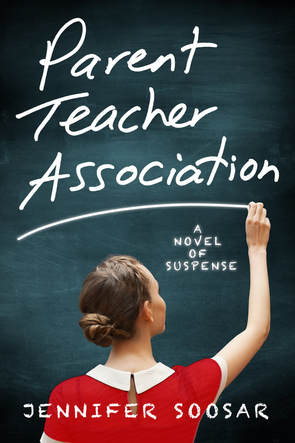 A troubled teacher. An aggressive parent. A town's deadly secret. Fresh out of a mental hospital, Lizanne Demeter is thrilled to get a second chance at her career when she's hired to teach third grade in the backwater town of Splinter Wood, Pennsylvania. But hopes for a peaceful new life are ruined when Naomi Seabrook, a demanding ‘helicopter parent’, pushes Lizanne to the brink. While struggling to maintain control of her classroom, Lizanne begins to unravel the secret behind Naomi’s hell-bent agenda. As deadly clues emerge, Lizanne suspects Naomi is guilty of more than just overindulging her child. With her life teetering on chaos, Lizanne risks everything to expose the shocking truth. But first, she must race against her own spiraling sanity to prove herself a more dedicated teacher than anyone dared imagine—the kind of teacher who makes ALL the difference. Check out Jennifer's website 'Like' Jennifer on Facebook Follow Jennifer on Twitter See Parent Teacher Association's trailer Where to Buy Parent Teacher Association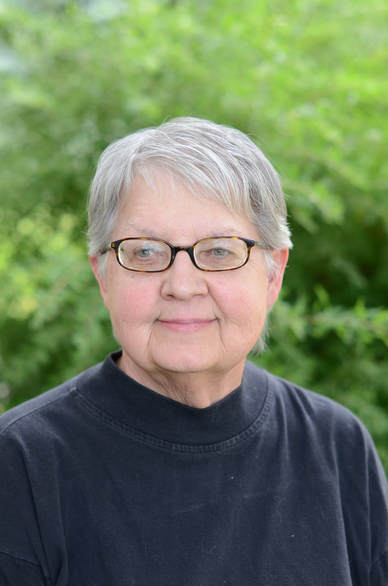 Nancy L. (Nan) Reed's love of words has inspired her to write short stories, novels, memory snippets, scripts, and poetry. She calls Colorado the perfect place to live and is Musing at nancylreed.com about writing, designing a tiny house specifically for a wordsmith, and other subjects bizarre and intriguing. She encourages everyone with words to share to put pen to paper. Her books include Words Left Behind: tales from a life gladly lived, A Short Story Olio, Dog-grr-el: canine cadence, hound haiku, puppy poetry, Dog-grr-el: canine conundrums, hound hankerings, puppy puzzlers, Questions: so many questions, and Conversations Between Two Great Friends. Trek to Contentment My first flirtation with manipulating words was at age four. With my mother’s help, I laboriously printed, in a very small hand, an annotated menu for my fantasy café. When I was five, Mom took me to the local library, having promised when I achieved that momentous age, I could apply for my very own library card – unheard of in those days at the Dawn of Woman. The puritanical library clerk at the desk refused to issue me one on the basis of my age. When Mom pointed out that nothing in the rules prevented me having my own card, the obstructive woman said I could only have one if I could sign my name longhand, which I promptly did. I treasured my key to the Kingdom of Words that would keep me company, soothe my aching spirit, and provide so much joy and clarity on my life journey. From the completion of that first tiny menu to present day, I have loved placing words on paper in such a way as to create a story, a picture, a mood, whatever a reader might seek in order to quench the thirst for words. To that end, I have saved every note, outline, partial and completed manuscript I’ve written since age four, hoping one day to turn one of them into something worthy of publication. Not long ago, I measured the volume of those writerly items to discover I had seventeen cubic feet of the stuff – the same volume as my upright freezer. Through the elementary grades, I wrote philosophical and tragic poetry which I printed by hand on fancy paper and bound with soft leather to give to my mother as Christmas gifts. Years later, rereading my two small poetry collections, I wondered if my mother had thought I was a depressed child – they were Oh! so melodramatic and weepy. After her death, I learned she’d kept them with her at the nursing home. She liked my words. During high school and college, I added to my piles of barely-begun and not-yet-finished manuscripts, but graduate school left me little time to pen stories. Then came a series of odd jobs and finally admission to the teaching profession. I began to have time to write again, although professional articles and lesson plans usurped much of it. When I moved to Colorado, teaching positions were hard to come by (a glut of teachers looking for work), so I began my thirty year tenure as a classified staff employee in a university library – books and more books! During that time, my ambitions to write fiction were once again sidelined by the need to write scholarly papers to complete a doctoral degree. Then, finally, I could write what I chose. I found a writing class at the senior center, taught by a gentleman who combined the art of teaching, the skill of authorship, and the talent of an artist. I learned about the craft of writing and had some of my short stories and poetry published in local anthologies. I continued taking classes through a local writer’s group that provided me the opportunities to learn about writing, interact with writers of all calibers, and work with critique groups and partners. They helped me hone my technique and style. In the past three years, thanks to my publisher, fellow writers, and encouraging family and friends, I’ve published six books with more to come. I find such support helps keep discouragement at bay. At one function, I had the good fortune to meet Avi when he appeared as a guest speaker. Although I don’t write for the same age group as he, I found his advice about writing and publishing to be informative and realistic. Like other well-known authors I’ve been fortunate to meet, he was willing to helping a newbie. I also felt a kinship with him for his love of dogs and took the opportunity to gift him one of my Dog-grr-el books. I wonder if he liked it? It was especially delightful that he liked my visor and told me so. I found him a very unpretentious person and a dedicated writer. I’ll probably never be a famous author, nor will I build my dream tiny house from my writerly profits, but thanks to many folks along the way who encouraged and supported my efforts, I’m a very contented wordsmith. Conversations Between Two Great Friends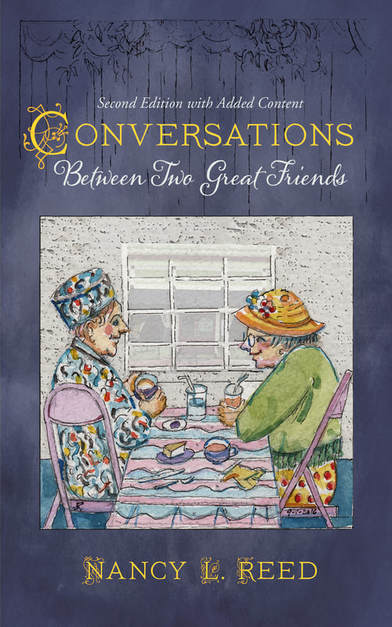 Conversations Between Two Great Friends (Second Edition, 2017) presents the heart-to-hearts between two ladies of a certain age. The tenor of their discussions ranges from happy to sad, giddy to serious, philosophical to scientific. Their favorite coffee house waitperson, mysteriously mute, and a grieving ghost punctuate their conversations. Spanning from Christmas to Christmas, readers eavesdrop on the private chats of the friends who reflect both Victorian sensibilities and twenty-first century attitudes. Nancy L. (Nan) Reed relishes the conversations with friends that inspired these fictionalized chats. Where to Buy Conversations Between Two Great Friends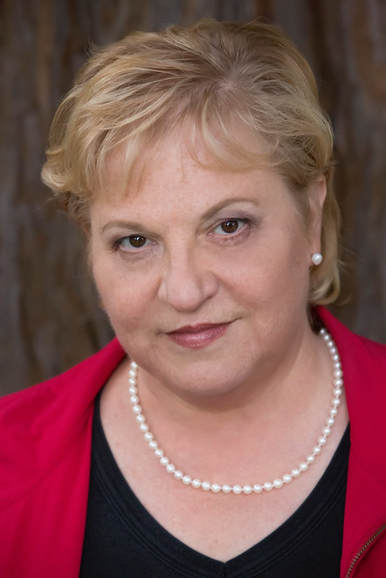 Susan Alice Bickford was born in Boston, Massachusetts, and grew up in Central New York. After she discovered computer graphics and animation her passion for technology pulled her to Silicon Valley, where she became an executive at a leading technology company. She now works as an independent consultant, and continues to be fascinated by all things high tech. She splits her time between Silicon Valley and Vermont. In an interview in the August 10, 2017 New York Times Book Review, Philippa Gregory responded to a question about genres with a provocative answer that definitely caught my attention. She starts off by going after pornography and goes on to say, "And why does anyone write lazy, sloppy genre novels? The typing alone is so exhausting — surely if you’re going to undertake 150,000 words, you might as well have something interesting to say? Why do people write crime novels with blindingly obvious murderers? Why do they write love stories with idiotic heroes?... Writing should be both individual and universal. Choosing to write a genre novel is like fencing the universe because you are afraid of space." After I shook off a measure of indignation, I took a step back to consider why I write fiction at all, and why I choose to write dark thrillers in particular. The desire to hear and tell stories is fundamental to the human psyche and mysteries and thrillers are genres that speak to me but in the past I have written non-fiction and flirted with other genres. Telling stories was something I wanted to do but I was torn between words and visual media, even in elementary school. In college, I started as a comparative lit major but ended up majoring with studio art. I even went on to get my MFA. Somewhere along the way, I knew I wanted to tell a different kind of story—a narrative story. Fiction called, but I couldn't figure out how to answer. Every time I tried to write, I floundered. Meanwhile, I fell under the spell of high tech. It started with computer graphics, then expanded to programming, and finally to participating in a full on engagement with Silicon Valley. It was a thrilling ride and I found that many aspects of my career required a great deal of creative thinking. Writing was critical as well. I had the opportunity to work directly with some of the most brilliant minds in the field but I found out that being able to communicate added value even if I was never the smartest person in the room. When I finally had an opportunity to take a break from my lean-in career about 12 years ago, I found I was consumed by the raw need to sit down and write. Eventually, I returned to working but chose to do consulting because it left me with the mental energy to do what I loved in my spare time: write. This time I didn't worry about genre or story. It didn't matter that I didn't have a voice or didn't know the basic rules. I simply picked up some thread that was buzzing around in my head and started writing. The only rule was that I had to love the story I was telling myself. I didn't care about publishing or sharing. Gradually, I started to zero in on certain themes. I noticed that I had a flair for certain aspects. Easily bored, I rotated from story to story every couple of weeks. Finishing was not a critical motivation. One night I began a story about a young woman who has to escape from someone. Two someones. In the woods like where I grew up in Central New York. It's night. They chase her. They die from their own stupidity as she outwits them. She leaves them, goes home, and.... Hmm. What next? In the course of one evening, I found my voice, my genre, my inner writing compass. Part of me had been waiting to write this story for decades. At the end of my freshman year in high school, two girls from my homeroom were brutally murdered. Their murderer was never identified and the world seemed to blame them for their own fates. Now I knew I had to write a tale about a teenage girl who is attacked and gets away. For a while. Her name would be Marly. This was the easiest part of the story. I soon had to ask myself what kind of family and community Marly came from. Why couldn't she go to the police? Why couldn't she tell anyone what had happened? What were the repercussions? How could I make this plausible? As I answered these questions, I built a world for Marly. I had to dig deeply into both my personal experiences but also dredge up my understanding of human nature, both good and bad. The more I scratched, the more I itched to go further and further. In the course of 80,000 words or so, I found my reasons for writing my particular genre, which I call country noir thrillers. I love the moral ambiguity the conflict this creates as we struggle to find our moral guideposts. Story telling is part of my soul now. My high school friends should have been able to live their own adult lives, make their own mistakes, experience joys and failures. Instead, they gave me a wonderful gift that opened up a window of self-discovery. I just wish they were here to share it. And that's why I write genre! Rather than discuss this with Philippa Gregory, I would much rather sit down with Sue Grafton, Val McDermid, or Ann Cleeves. A personal conversation with any of them on this topic would put me over the moon. A Short Time to Die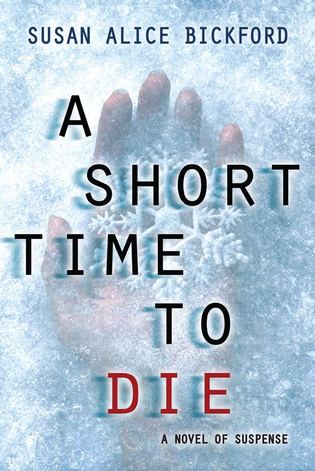 In this electrifying debut by Susan Alice Bickford, two women from opposite sides of the country find their lives inextricably bound—by blood, by fear, and by a merciless, murderous revenge… Walking home from a high school dance on a foggy autumn night in rural New York, Marly Shaw sees a flash of approaching headlights. A pickup truck stops and two men get out. One of them is the girl’s stepfather. She runs. They follow. Minutes later, gunshots are fired, two men are dead, and one terrified girl is running—for the rest of her life… Thirteen years later, human bones are discovered in the Santa Cruz Mountains of California. DNA tests reveal they belong to a mother and son from Central New York. Both have criminal records. Assault. Involuntary manslaughter. Maybe more. Santa Clara County Sheriff Detective Vanessa Alba wants to know how these backwater felons ended up so far from home. Vanessa and her partner, Jack Wong, head to the icy terrain of the Finger Lakes to uncover the secrets of a powerful family whose crimes are too horrifying to comprehend. Whose grip over a frightened community is too strong to break. And whose twisted ideas of blood and honor are a never-ending nightmare for the one family member who thought she got away… 'Like' Susan on Facebook here 'Follow' Susan on Twitter here Check out Susan's Website here Where to Buy A Short Time to Die |
AuthorI'm generally pulled in a million different directions and I wouldn't trade it for the world. Here's a glimpse of my life - hope you enjoy it! And if there's a big lapse between posts, well, that's the way life goes in Amy's world. Archives
October 2022
Categories
All
|
|
Copyright 2024 by Amy Rivers. All rights reserved. |
 RSS Feed
RSS Feed